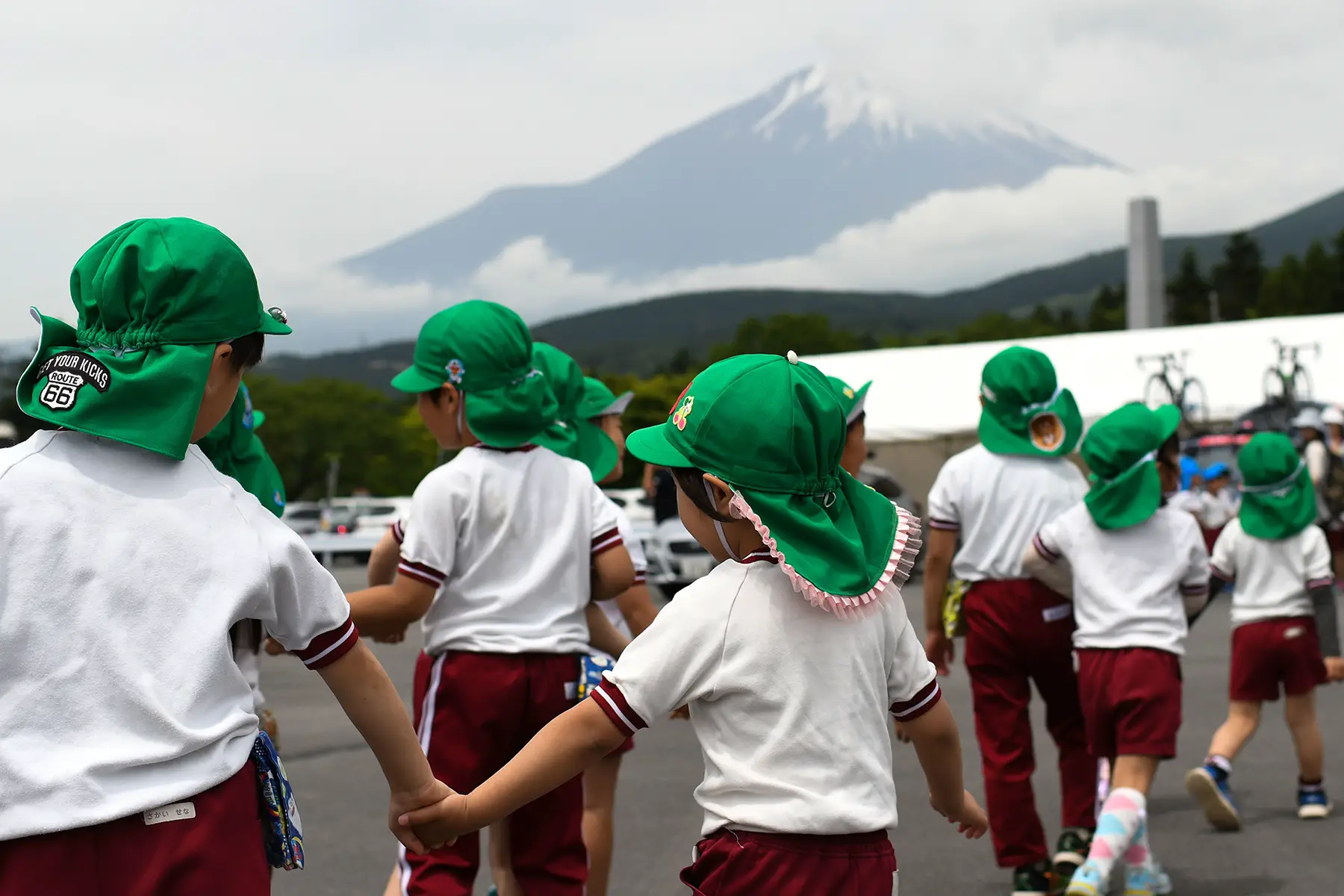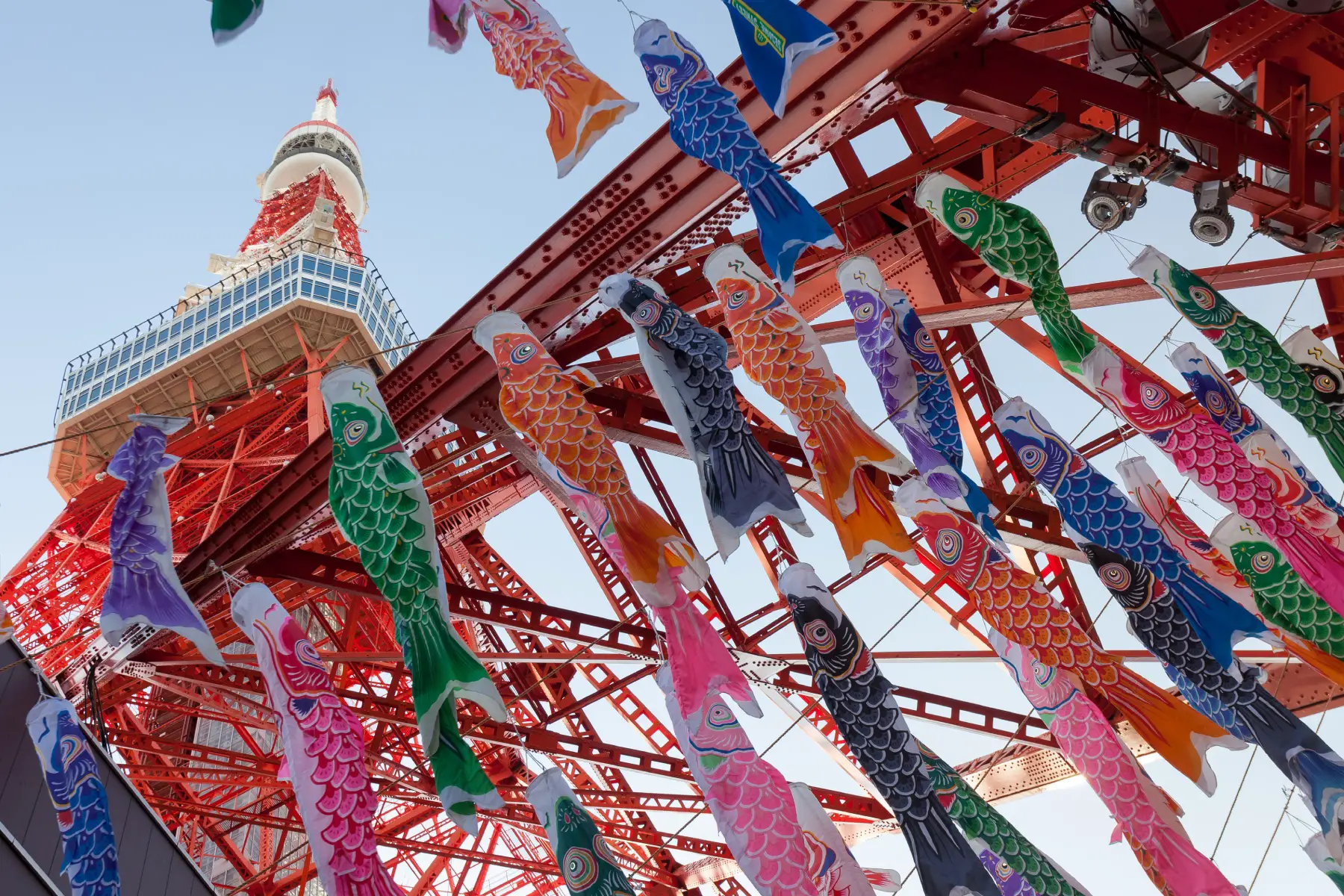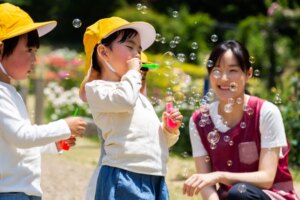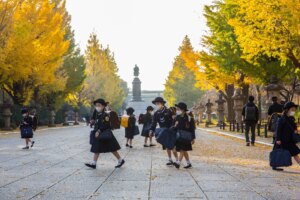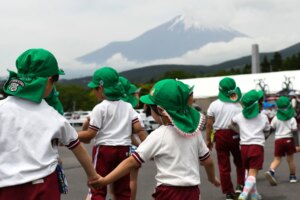School breaks are the perfect time to have fun and quality time with your children. For parents, knowing these dates is crucial for planning holidays, family visits, and exciting activities. It’s also important to arrange any childcare in advance if you’ll be working on these days.
Here’s what you need to know:
An overview of school holidays in Japan
The Ministry of Education, Culture, Sports, Science, and Technology (MEXT – 文部科学省) sets Japan’s school holidays (育児) across the country. The school year begins in April and concludes in March of the following year. Interestingly, the calendar coordinates with the fiscal year, which also runs from April to March and aligns with Japanese business holidays.
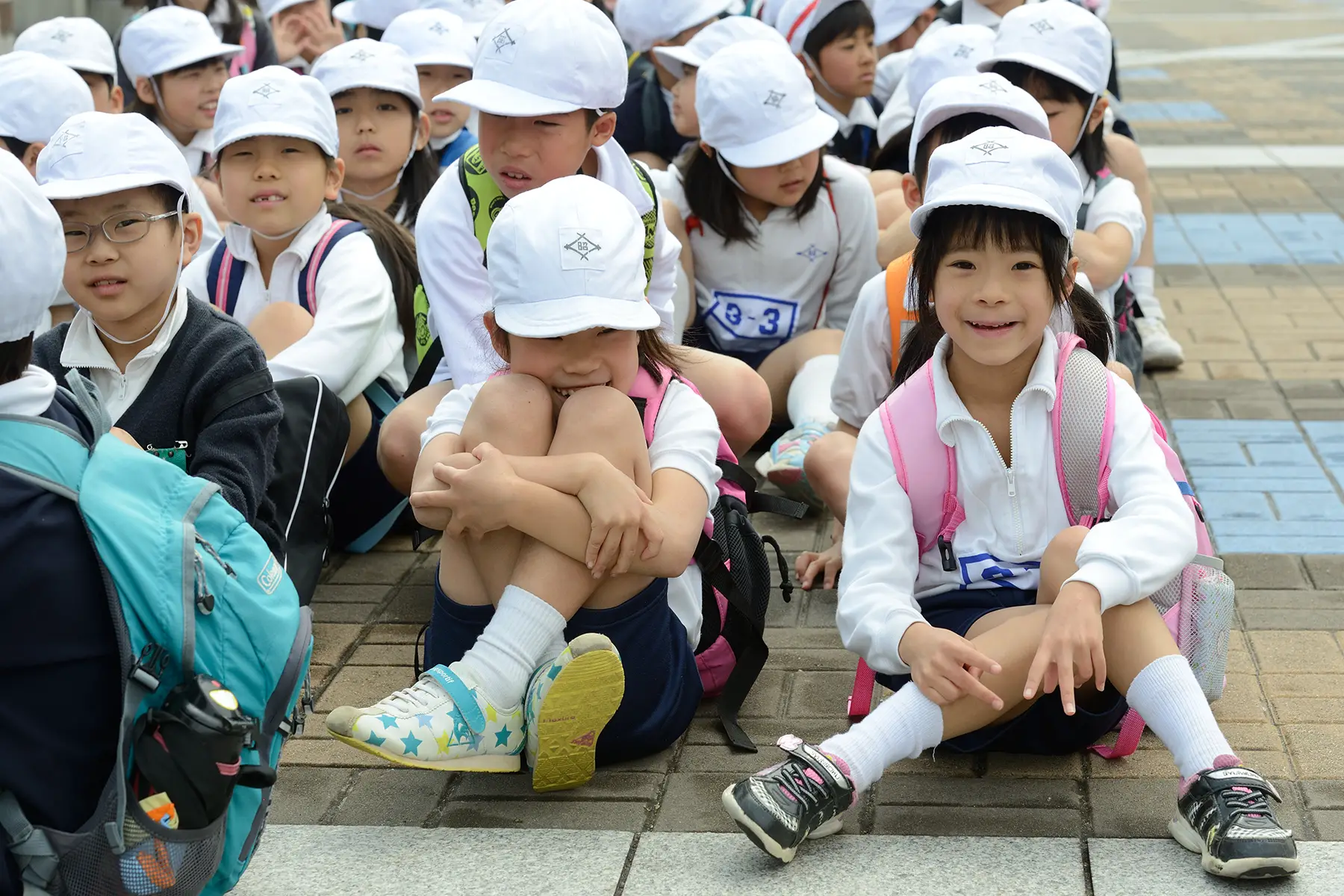
Schools typically have three main holidays throughout the year, including during Winter, Spring, and Summer. Students also get additional vacation days; for example, the Golden Week (ゴールデンウィーク) begins with Showa Day on 29 April, followed by:
- Constitution Memorial Day (3 May)
- Greenery Day (4 May)
- Children’s Day (5 May)
Most International schools in Japan follow a completely different calendar. These schools often have two semesters (rather than three), with four holidays, including during Autumn, Winter, Spring, and Summer. Of course, some international schools may also give the children days off on their home country’s festive days; for example, American schools celebrate American Thanksgiving.
Be sure to check with your child’s school for full details.
When are Japan’s school holidays in 2025–2026?
Check with your school in case of variations.
| Holiday | Dates |
| First day of school | 7 April 2025 |
| Summer holiday | 19 July – 24 August 2025 |
| Winter holiday | 24 December 2025 – 6 January 2026 |
| Spring holiday | 24 March – 4 April 2026 |
Other important dates in 2025–2026
The additional holiday dates for the 2025–2026 school year are:
| Holiday | Dates | Weekday |
| Shōwa Day | 29 April 2025 | Tue |
| Greenery Day observance | 6 May 2025 | Mon |
| Children’s Day | 5 May 2025 | Mon |
| Sea Day | 21 July 2025 | Mon |
| Mountain Day | 11 August 2025 | Mon |
| Respect for the Aged Day | 15 September 2025 | Mon |
| Sports Day | 13 October 2025 | Mon |
| Culture Day | 3 November 2025 | Mon |
| Labor Thanksgiving Day observance | 24 November 2025 | Mon |
| Coming of Age Day | 12 January 2026 | Mon |
| National Foundation Day | 11 February 2026 | Wed |
| The Emperor’s Birthday | 23 February 2026 | Mon |
When are the public holidays in Japan?
In addition to the regular school holidays in Japan, children get the day off on national and local holidays. Depending on your area, some schools may be closed for local festivals as well. You can find out more by reading our article on public holidays in Japan.
Busy holiday travel times
The school holidays are a popular time for Japanese families to travel, especially during Golden Week (29 April – 6 May 2025). Also popular is Obon (お盆), a summer holiday when ancestors’ spirits are thought to return to Japan. In practice, you can expect heavy traffic from 13 to 16 August, as many people visit their ancestral towns and villages. Bear this in mind when you book hotel accommodation or train travel during this holiday period.
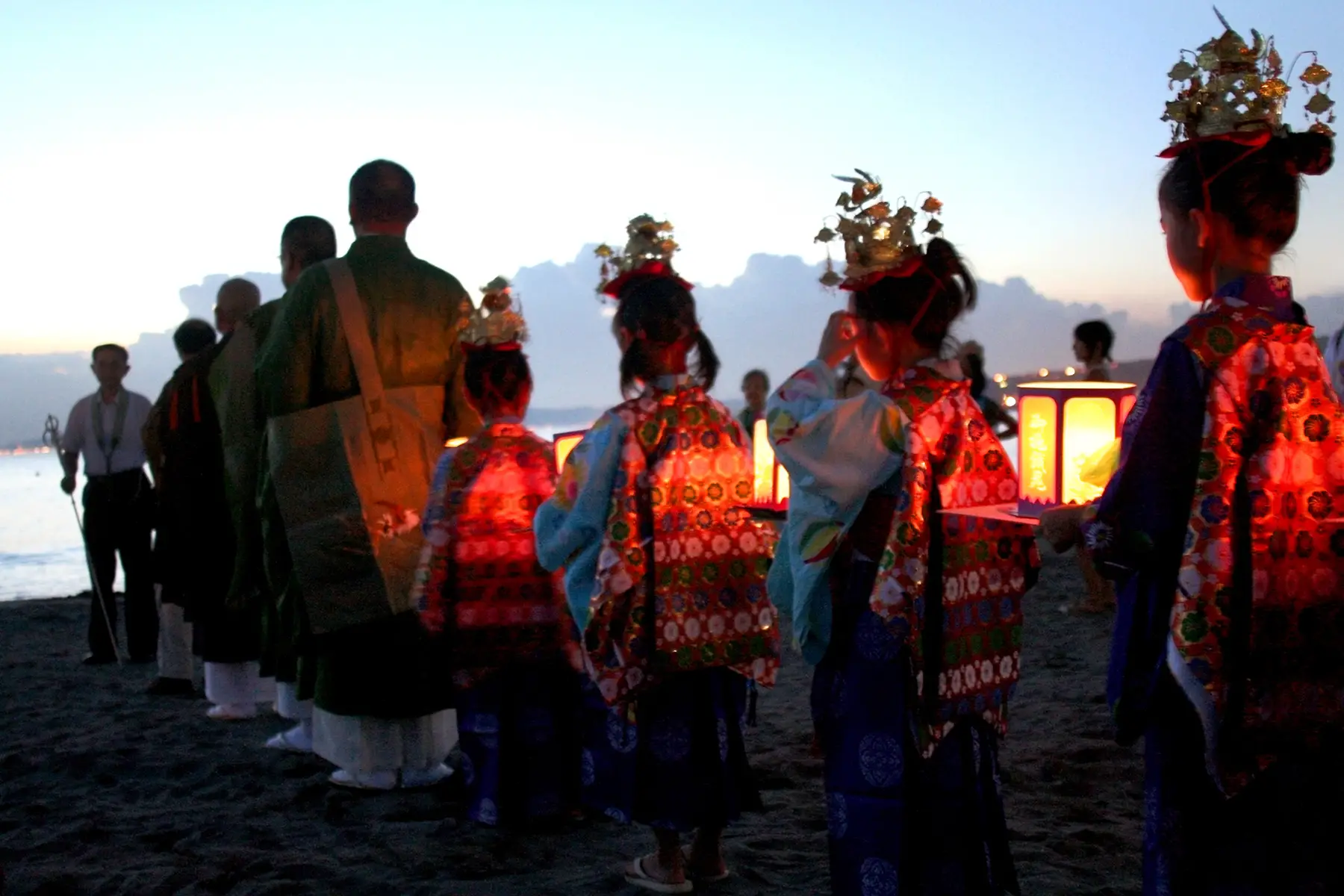
Some years, both Respect for the Aged Day and Autumnal Equinox Day also align for a long weekend. This is called Silver Week (シルバーウィーク) and is another popular time to travel.
Another busy holiday period is around New Year’s Day (正月) and at the end of the school year in late March. Accordingly, be sure to plan travel and accommodations well in advance.
Tips for expat parents in Japan
Childcare during Japanese school holidays
Your children’s school holidays may clash with your work schedule. Fortunately, you can access a range of childcare options in Japan, including:
- Daycare centers
- Kindergartens
- Au pairs/nannies
- Childminders
- Babysitters
- Parents’ helpers
10 fun summer camps in Japan
For longer school breaks, there are numerous holiday camps available throughout Japan. These provide them with the opportunity to socialize and make new friends while learning some valuable new skills.
Some of the popular holiday camps include:


